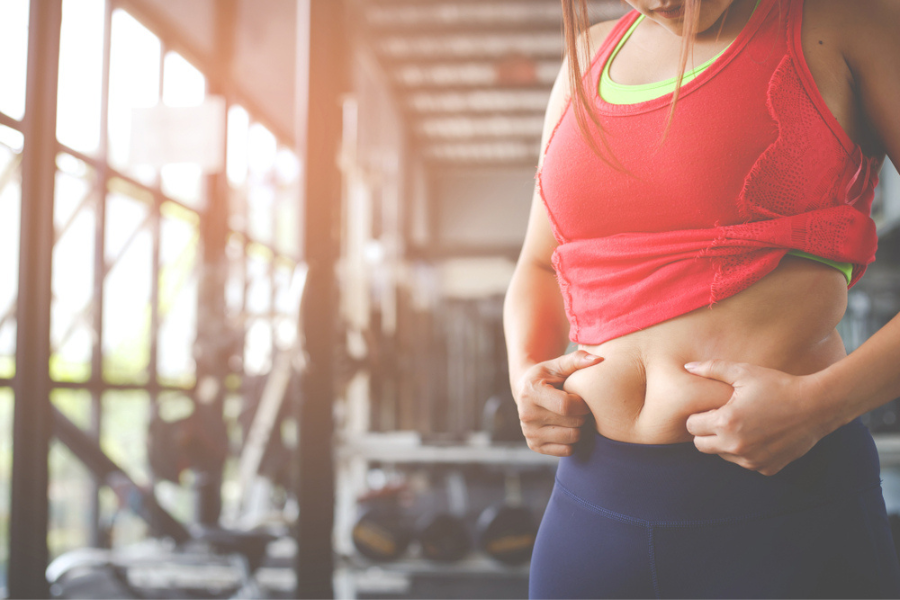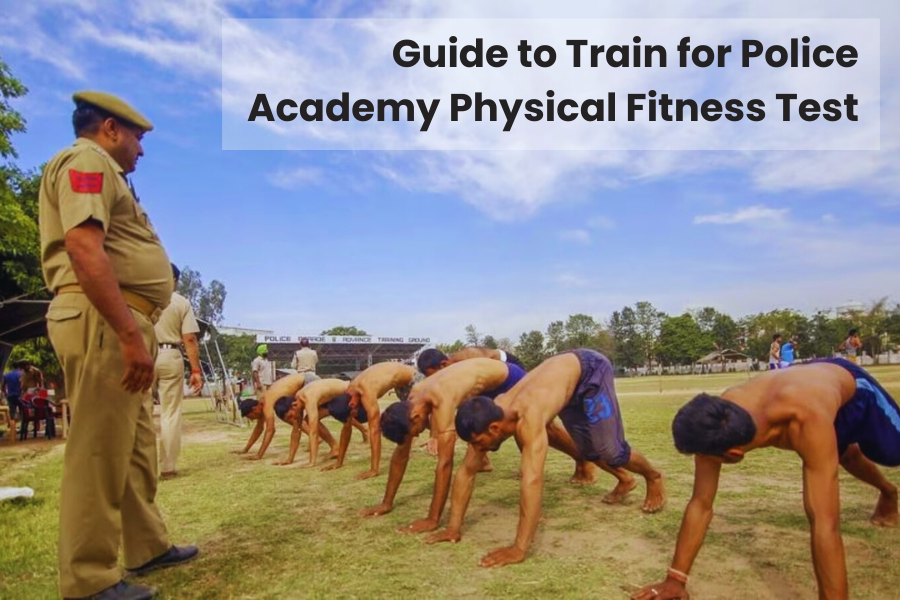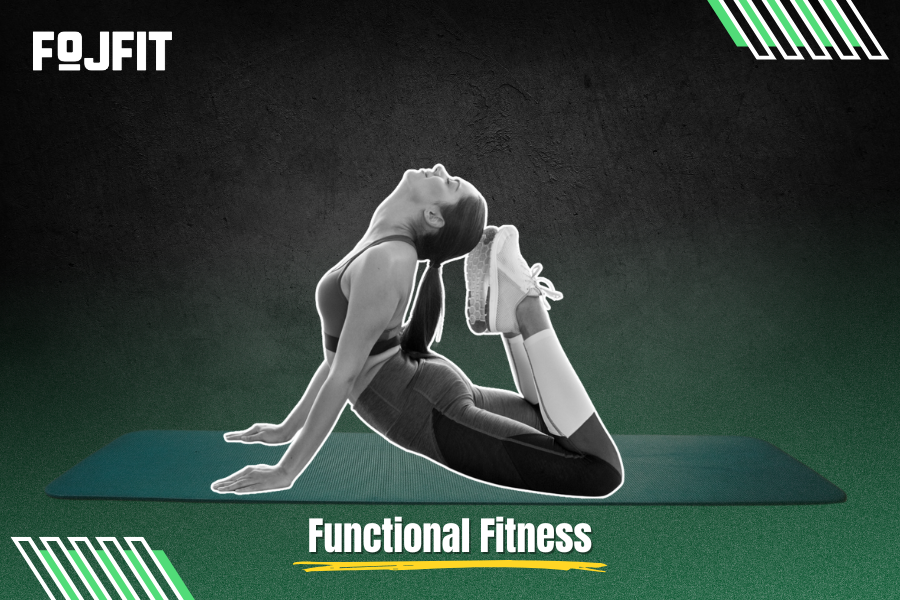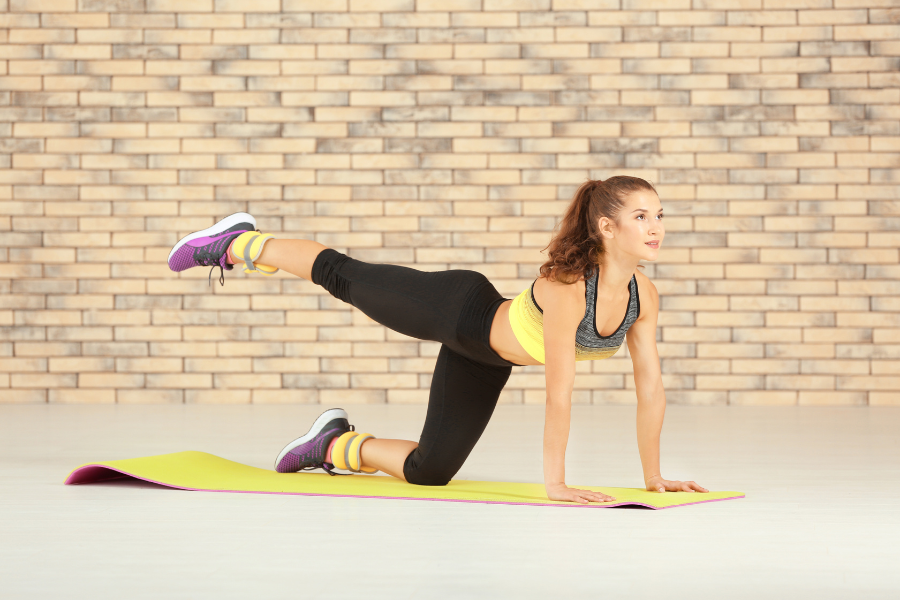Read Our Latest Blogs
Read about science-backed fitness facts, healthy eating habits, workout tips and tricks, nutritional foods, and more. Your one-stop shop to stay updated with in-vogue fitness trends.


Are you experiencing bloating and gaining excess water weight? Not to mention that it could undermine your confidence and self-worth, and it can be annoying and uncomfortable. Water weight gain results from your body holding onto fluid, making you bloated and puffy in different body parts like your arms, legs, and tummy.
Reducing water weight gain isn't just about looking good, it's also crucial for your health. Carrying around excess water weight can put a strain on your heart and kidneys, and it can even lead to more serious medical conditions. By taking steps to reduce water weight gain, you can feel better physically and mentally, giving you the confidence and energy to live your best life. In this article, we will explore various tips and strategies to help you reduce water weight gain and bloating. We will focus on two main components: diet and workouts. By making small, sustainable changes to your lifestyle, you can reduce water weight gain and bloating while improving your overall health and well-being.
Many factors can cause water weight gain and bloating, and it's important to understand them to find ways to reduce and prevent them. One of the most common culprits is excess sodium intake, which can cause your body to retain more water than it needs. This can lead to a puffy and bloated appearance, especially in areas like your face and hands.
Dehydration is another common cause of water weight gain, as counterintuitive as that may sound. When your body isn't getting enough water, it tries to hold onto the water it does have, which can lead to bloating and puffiness. It's important to stay hydrated throughout the day by drinking plenty of water and other hydrating fluids.
Hormonal changes can also contribute to water weight gain, particularly during certain times of the menstrual cycle. Women may experience bloating and water retention in the days leading up to their period, which can be both uneasy and annoying.
Finally, certain medical conditions like edema can cause water retention and bloating. Oedema is a condition in which excess fluid builds up in the body's tissues, causing swelling and discomfort. If you're experiencing persistent or severe water retention, it's important to talk to your healthcare provider to rule out any underlying medical issues.
Water weight gain and bloating can be uncomfortable and frustrating, but making simple changes to your diet and exercise routine can help reduce these symptoms. By combining a healthy diet with regular exercise, you can improve your overall health and well-being while reducing water weight gain and bloating.
Ways to reduce water weight gain and bloating through diet -
1. Increase water intake: Drinking plenty of water can help flush out excess sodium and fluids from your body, reducing water weight gain and bloating.
2. Reduce sodium intake: Consuming too much sodium can cause your body to retain water, leading to bloating and weight gain. Try reducing your sodium intake by avoiding processed foods and adding herbs and spices to your meals for flavor.
3. Increase potassium intake: Potassium is an essential mineral that helps regulate fluid balance in the body. Incorporating potassium-rich foods like bananas, avocados, and sweet potatoes can help reduce water weight gain.
4. Incorporate diuretic foods: Diuretic foods like cucumber, watermelon, and celery can help increase urine output and reduce water retention.
Ways to reduce water weight gain and bloating through exercise
5. Cardiovascular exercise: Cardiovascular exercises like running, cycling, and swimming can help increase circulation and promote sweating, which can help reduce water weight gain and bloating. Aim for at least 30 minutes of moderate-intensity cardiovascular exercise per day, and gradually increase the intensity and duration of your workouts over time.
6. Resistance training: Resistance training can help build muscle and increase your metabolism, which can help reduce overall body fat and water weight. Incorporate resistance training exercises, such as weightlifting or bodyweight exercises, into your workout routine at least two to three times per week.
7. Yoga and stretching: Yoga poses and stretching can help improve circulation and lymphatic drainage, which can help reduce water retention and bloating. Consider adding a yoga or stretching routine to your workout regimen at least once a week to improve flexibility, circulation, and lymphatic drainage.
Tips for maximizing the effects of diet and exercise
Stay consistent: Making small, sustainable changes to your diet and exercise routine can help you see long-term results.
Incorporate a variety of foods and exercises: Variety is key to keeping your body challenged and avoiding boredom.
Listen to your body: Pay attention to how your body feels and adjust your diet and exercise routine accordingly.
By incorporating a balanced diet and regular exercise, you can help reduce fluid retention and bloating. In addition to reducing water weight gain and bloating, these lifestyle changes have numerous other health benefits, including improved digestion, increased energy levels, and better overall health. You can also check out the tips mentioned in the article for more effective results. Moreover, all of these things can help boost your self-confidence and make you feel more comfortable in your own body. So, whether you're looking to reduce bloating for aesthetic or health reasons, these sustainable changes to your diet and exercise routine can go a long way in achieving your goals.

Entering into the police force and contributing to safeguarding the citizens and maintaining law and order is an honor t...
19 July 2023
For defence aspirants, physical fitness isn't just about passing a test; it's about preparing for the unpredictable, dem...
18 August 2025
Mini workouts are brief exercise sessions that can be completed in a short amount of time, typically lasting anywhere fr...
28 March 2023